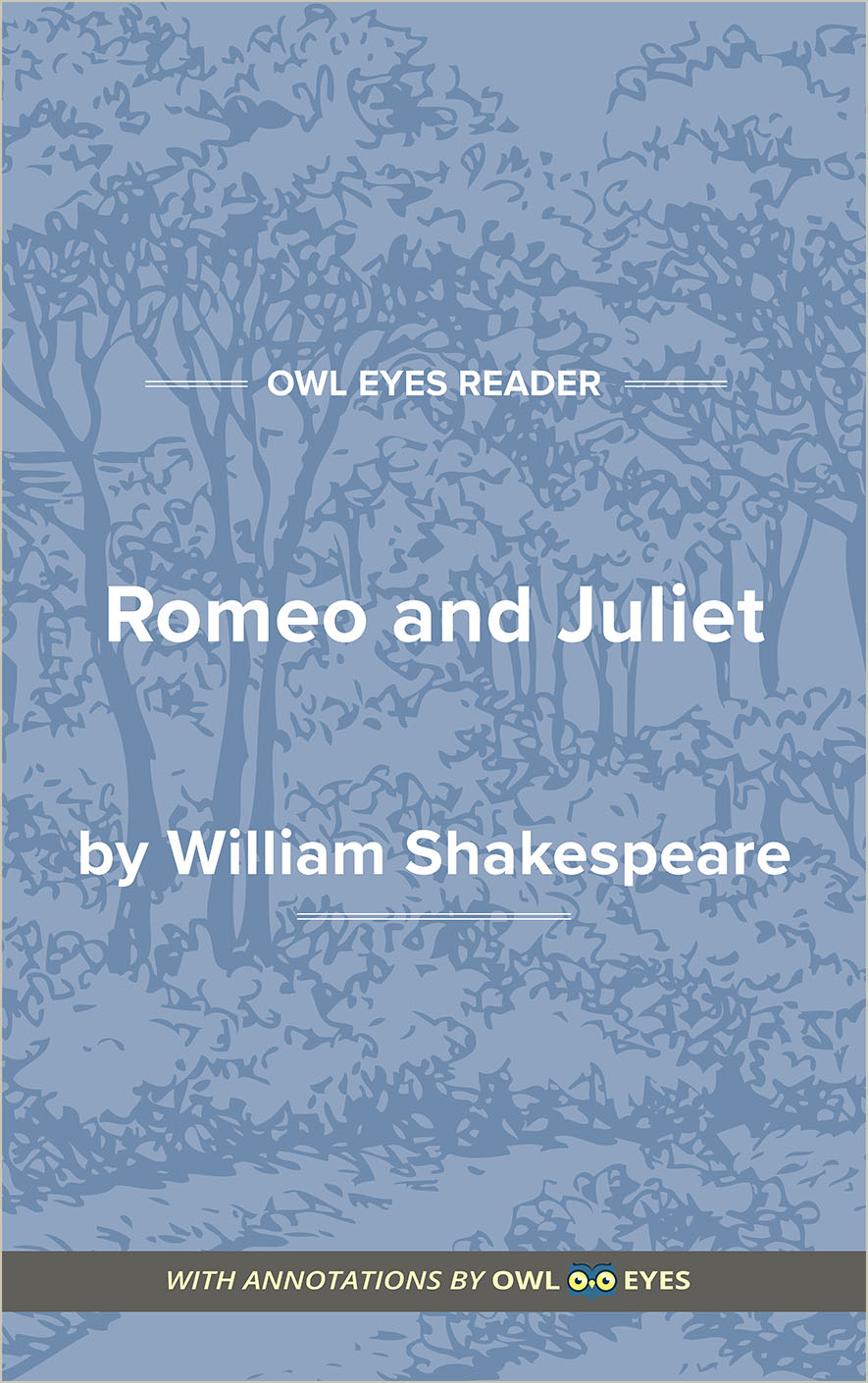Analysis Pages
Themes in Romeo and Juliet
Love: The central storyline in the play is the romance between Romeo and Juliet. Perhaps the most compelling aspect of their particular romance is its doomed nature. The play opens with a sonnet that describes the two title characters as “a pair of star-crossed lovers,” a saying from astrology that means their love is destined to be “frustrated” or doomed by the stars. In the context of a Shakespearean tragedy, romantic love is something inherently fleeting and doomed.
Loyalty: The force pulling the two lovers apart is loyalty, namely loyalty to family. The Capulets and the Montagues represent the two most powerful aristocratic families in Verona and are at odds with one another. Juliet, a Capulet, and Romeo, a Montague, are torn between loyalty to their families and loyalty to one another. Secondary characters, such as Mercutio, Tybalt, and Benvolio, are also marked and condemned by their loyalty to the families.
Tragedy: Romeo and Juliet is an example of a tragedy, a style of play that depicts human suffering and often death. The ancient Greeks considered tragedy one of the highest forms of art. Using the grim subject matter, the work achieves beauty. The audience is guided into the experience of catharsis, a powerful release of negative feelings in the face of fear, pity, and sorrow.
Themes Examples in Romeo and Juliet:
Act I - Scene I
🔒"O brawling love! O loving hate..." See in text (Act I - Scene I)
"Draw thy tool..." See in text (Act I - Scene I)
Act I - Scene III
🔒"in gold clasps locks in the golden story..." See in text (Act I - Scene III)
"stint..." See in text (Act I - Scene III)
Act I - Scene IV
🔒"vain fantasy;..." See in text (Act I - Scene IV)
Act I - Scene V
🔒"My only love, sprung from my only hate! Too early seen unknown, and known too late! Prodigious birth of love it is to me That I must love a loathed enemy...." See in text (Act I - Scene V)
"choler..." See in text (Act I - Scene V)
Act II - Scene II
🔒"Parting is such sweet sorrow,..." See in text (Act II - Scene II)
"bird..." See in text (Act II - Scene II)
"bent..." See in text (Act II - Scene II)
"unsatisfied..." See in text (Act II - Scene II)
" swear not by the moon..." See in text (Act II - Scene II)
Act II - Scene III
🔒"mickle..." See in text (Act II - Scene III)
Act II - Scene IV
🔒"I will tell her as much..." See in text (Act II - Scene IV)
"pin..." See in text (Act II - Scene IV)
Act II - Scene V
🔒"Romeo..." See in text (Act II - Scene V)
Act III - Scene V
🔒"Hie hence, be gone, away!..." See in text (Act III - Scene V)
Act V - Scene I
🔒"kisses in my lips..." See in text (Act V - Scene I)
Act V - Scene III
🔒"Romeo..." See in text (Act V - Scene III)
"That heaven finds means to kill ..." See in text (Act V - Scene III)
"tedious tale...." See in text (Act V - Scene III)

